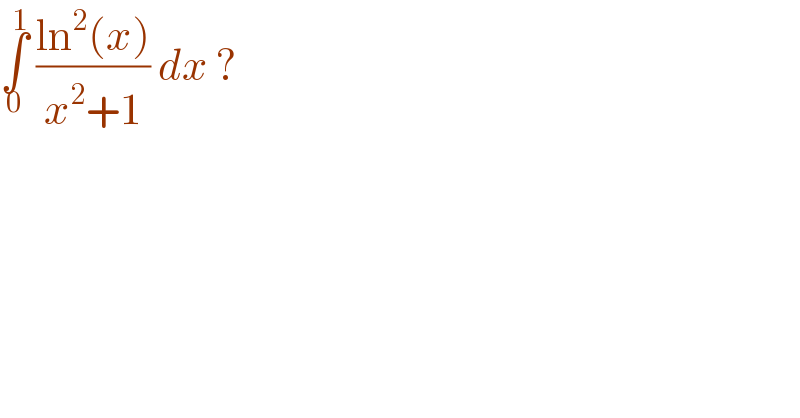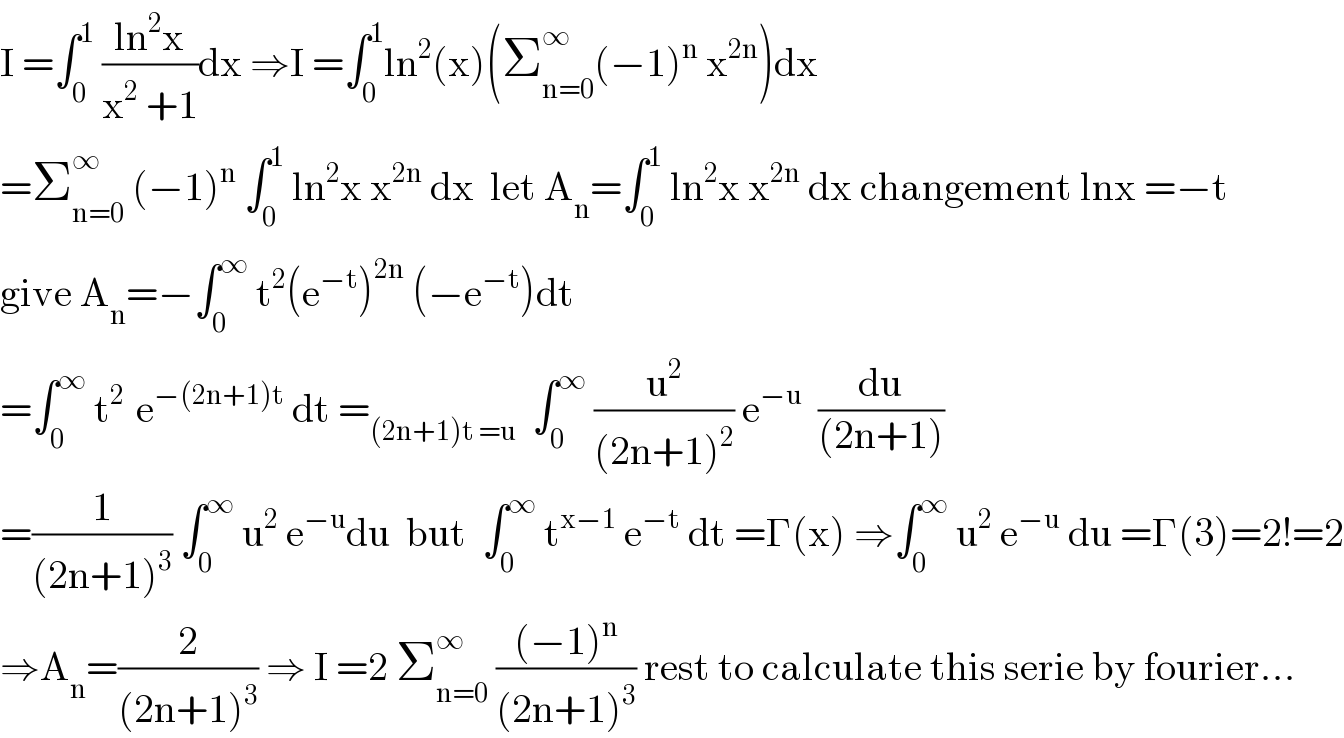
Question and Answers Forum
Question Number 98016 by bemath last updated on 11/Jun/20

Commented by bobhans last updated on 11/Jun/20
![substitution w = −ln (x) , x = e^(−w) I= ∫_∞ ^0 (((−w)^2 )/(1+(e^(−w) )^2 )) (−e^(−w) dw) I= ∫_0 ^∞ w^2 .(e^(−w) /(1+e^(−2w) )) dw [ (e^(−w) /(1+e^(−2w) )) = Σ_(n =0) ^∞ (−1)^(n−1) e^(−(2n+1)w) ] I= Σ_(n=1) ^∞ (−1)^n ∫_0 ^∞ ((t/(2n+1)))^2 e^(−t) (dt/(2n+1)); where t = (2n+1)w I= Σ_(n=0) ^∞ (((−1)^n )/((2n+1)^3 )) ∫_0 ^∞ t^2 e^(−t) dt I= Σ_(n=0) ^∞ (((−1)^n )/((2n+1)^3 )) .2! = 2 × Σ_(n=0) ^∞ (((−1)^n )/((2n+1)^3 )) I= 2× (π^3 /(32)) = (π^3 /(16)) ■](Q98019.png)
Commented by M±th+et+s last updated on 11/Jun/20

Commented by bemath last updated on 13/Jun/20

Answered by mathmax by abdo last updated on 11/Jun/20

